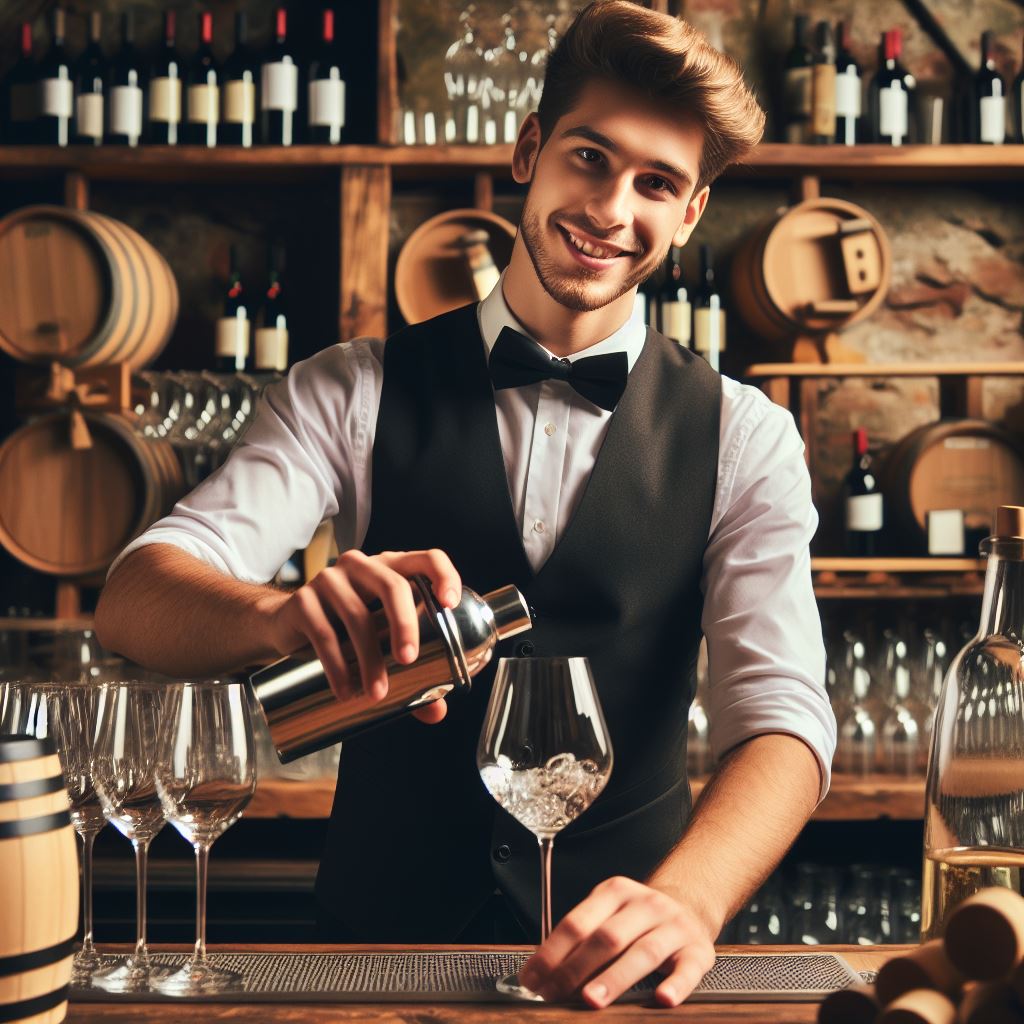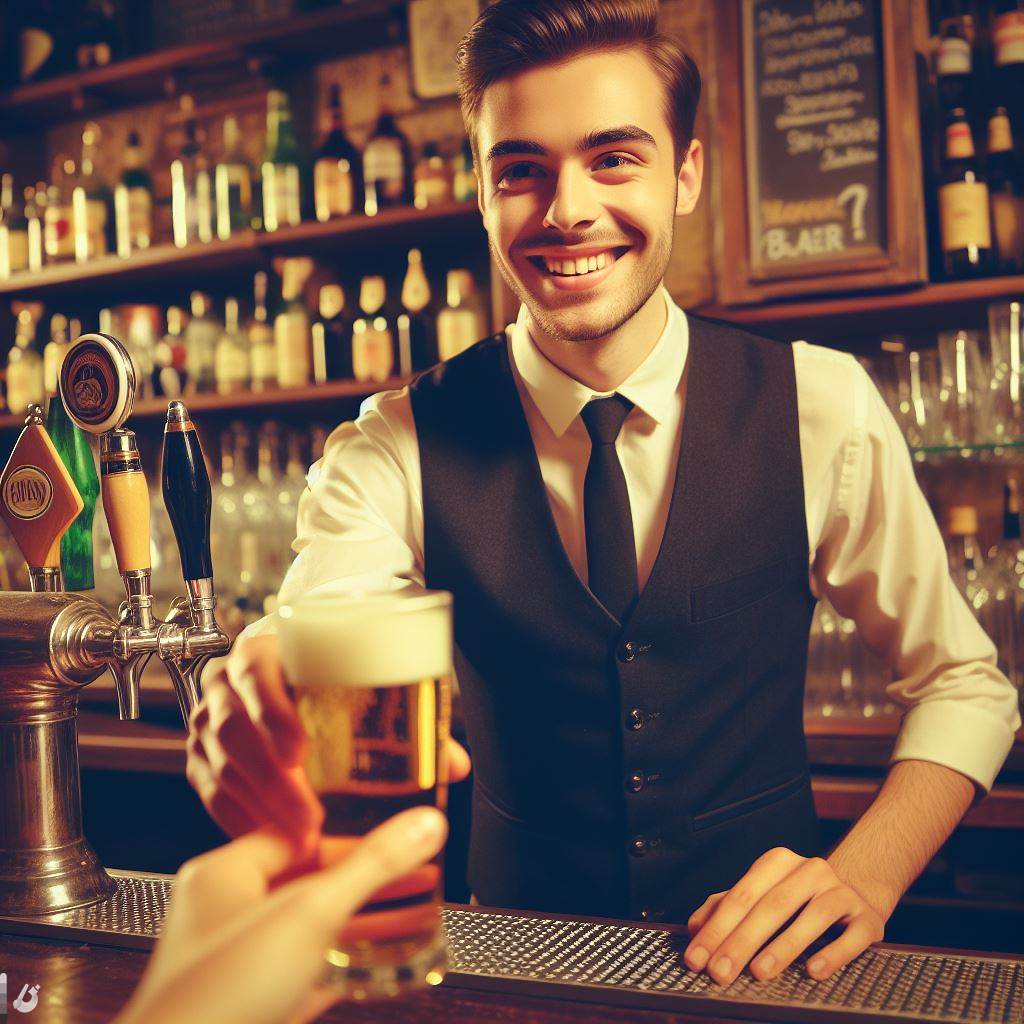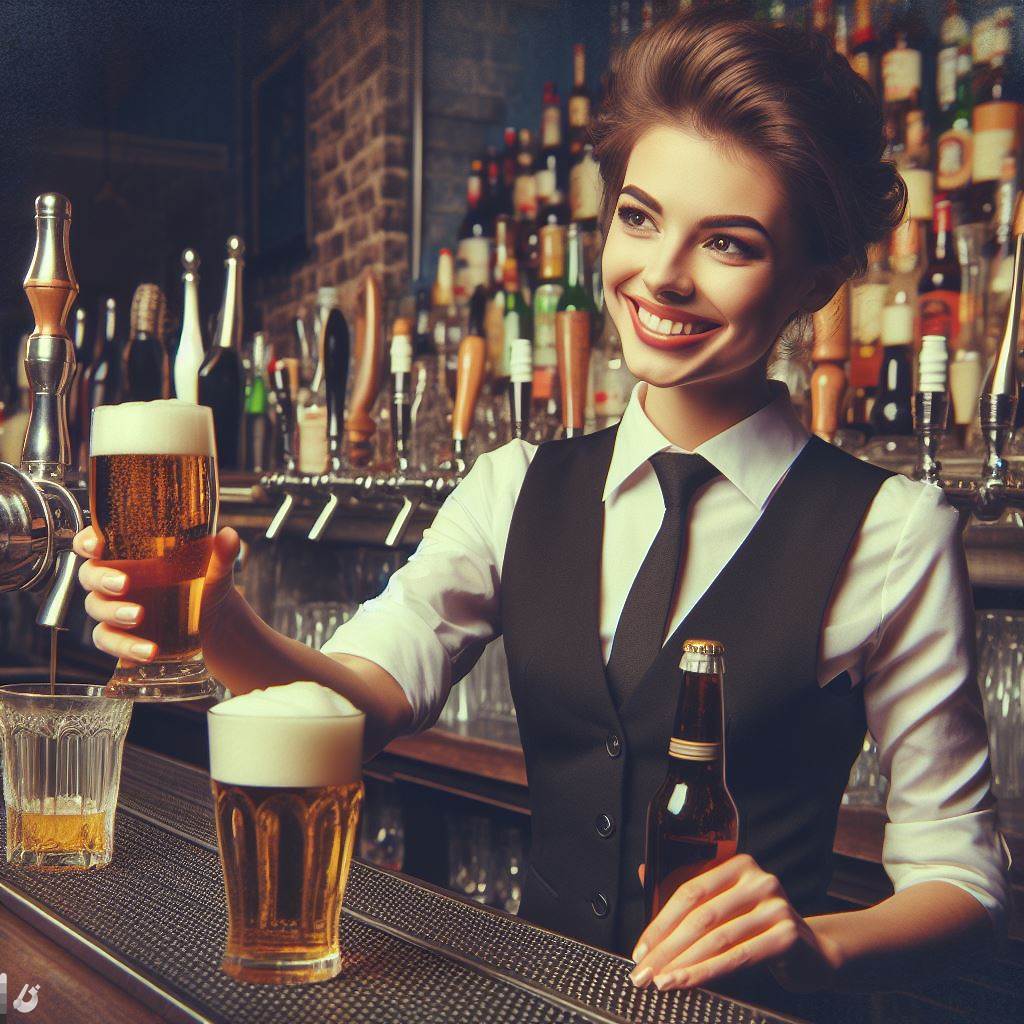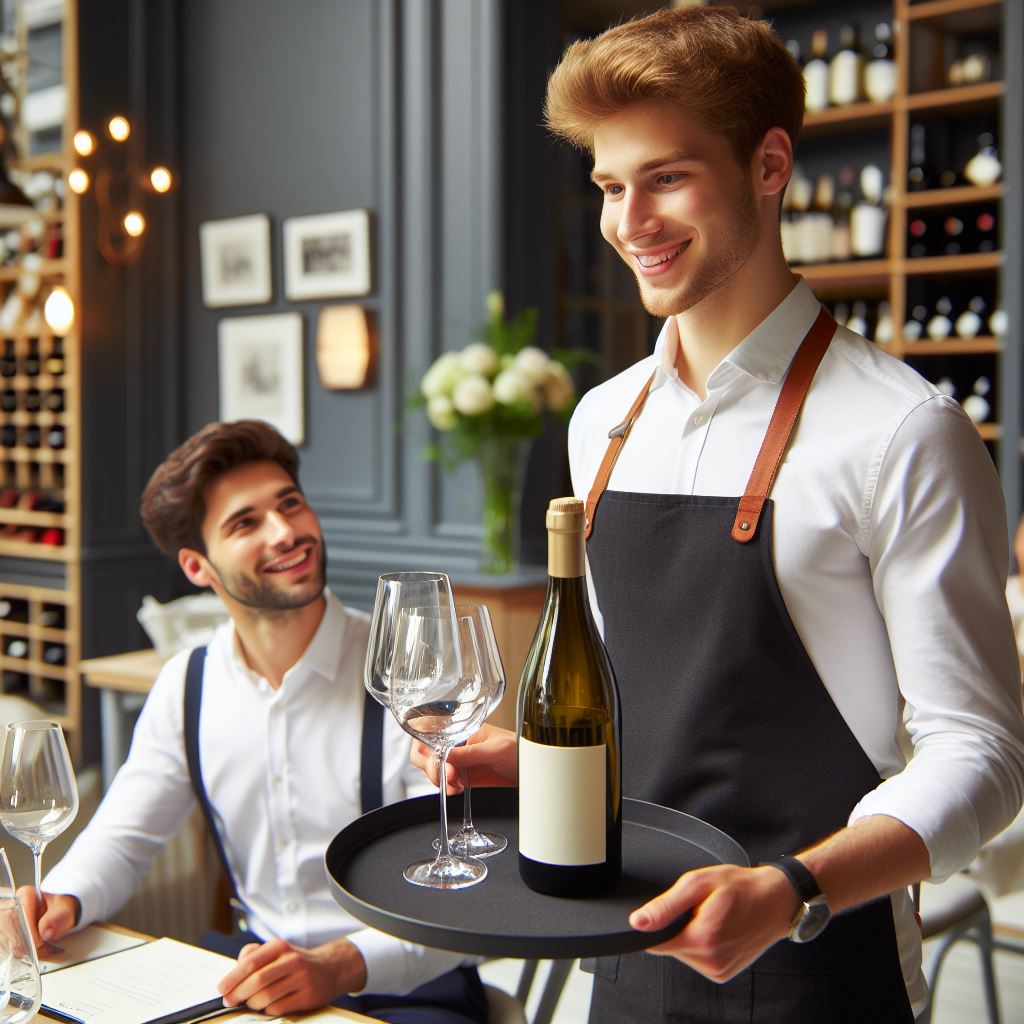Introduction
The evolution of technology in the UK bartending industry has been remarkable.
From basic tools to advanced equipment, technology has revolutionized the way bartenders work.
It has become an integral part of enhancing bartending skills and increasing efficiency.
From advanced mixology tools to innovative point-of-sale systems, technology has seamlessly woven itself into the fabric of every pour and every interaction within the UK bartending sphere.
The integration of digital platforms, mobile applications, and data analytics has not only streamlined day-to-day operations but has also ushered in a new era of creativity and personalization behind the bar.
Furthermore, the impact of social media and online platforms cannot be understated, as bartenders leverage these channels to showcase their craft, connect with patrons, and stay abreast of the latest industry trends.
This symbiotic relationship between technology and bartending reflects a dynamic shift in how libations are crafted, presented, and experienced.
As we navigate the intricate interplay between tradition and innovation, this exploration seeks to unravel the layers of technology’s influence on the art of bartending in the UK.
Beyond efficiency gains, technology serves as a catalyst for pushing the boundaries of mixology, fostering a sense of community, and adapting to the ever-changing landscape of consumer preferences.
Join us on a journey through the digital evolution of UK bartending, where each pixelated innovation contributes to the vibrant tapestry of an age-old craft.
Technological advancements in UK bartending
Technology has revolutionized many industries, and bartending in the UK is no exception.
The role of technology in bartending has significantly evolved over the years, leading to increased efficiency, improved customer experience, and enhanced cocktail preparation and presentation.
Introduction of automated drink dispensers and cocktail machines
One of the most prominent technological advancements in UK bartending is the introduction of automated drink dispensers and cocktail machines.
These devices have revolutionized the way drinks are served. With automated drink dispensers, bartenders can provide speed and accuracy in serving drinks.
These machines can accurately measure and pour specific amounts of alcohol, ensuring consistency in every cocktail.
Personalized UK Career Consulting
Receive tailored career guidance designed just for you. Get actionable steps and expert support to boost your career in 1-3 days. Take control of your career now.
Get StartedThey also eliminate the possibilities of human errors in measurement, resulting in well-balanced and perfectly mixed drinks.
Moreover, automated drink dispensers have proven to be highly efficient, especially when serving large crowds.
In crowded venues like bars, clubs, or events, bartenders often face the challenge of handling a high volume of drink orders.
The use of automated drink dispensers significantly speeds up the serving process, reducing wait times for customers.
This not only enhances customer satisfaction but also allows bartenders to serve a larger number of customers within a shorter period, ultimately increasing revenue.
Utilization of mobile POS systems and digital ordering platforms
Another technological advancement that has revolutionized UK bartending is the utilization of mobile POS systems and digital ordering platforms.
These technologies offer convenience for both bartenders and customers.
With mobile POS systems, bartenders can take orders directly from customers’ tables, eliminating the need for customers to queue at the bar.
This streamlines the ordering process, enhances customer satisfaction, and frees up bartenders to focus more on providing quality service.
Additionally, digital ordering platforms allow customers to place their orders directly through their smartphones or tablets.
This eliminates the need for physical menus and manual order-taking, reducing the chances of errors in order transcription.
Customers can easily browse through the drink options, make their choices, and proceed with secure online payments.
The integration of these technologies has made the payment process more streamlined and efficient, leading to reduced errors and improved customer experience.
Integration of smart bar tools and devices
Furthermore, the integration of smart bar tools and devices has had a significant impact on the overall bartending experience.
Your Dream Job Starts with a Perfect CV
Get a tailored CV and cover letter that captures your unique strengths and stands out in your industry. Let us help you make an unforgettable first impression.
Get StartedSmart bar accessories, such as smart bottle openers, smart pourers, and smart glassware, provide bartenders with real-time data and insights.
These accessories can track the amount of alcohol used, measure pouring speed, and even provide alerts when inventory needs to be restocked.
This technology allows bartenders to have better control over their inventory, reduce waste, and optimize drink preparation processes.
Moreover, technology-powered devices have been developed to enhance cocktail preparation and presentation.
Bartenders can now use tools like automated shakers, nitro-infusers, and molecular gastronomy kits to create unique and visually appealing cocktails.
These devices not only add an element of excitement to the bartending process but also enhance the overall customer experience.
The use of technology-powered devices allows bartenders to showcase their creativity and elevate the presentation of cocktails, turning them into a true work of art.
In short, the role of technology in UK bartending has significantly evolved, bringing numerous benefits to both bartenders and customers.
Automated drink dispensers and cocktail machines provide speed and accuracy, while mobile POS systems and digital ordering platforms offer convenience and streamlined payment processes.
The integration of smart bar tools and devices enhances bartending experiences and allows for the creation of unique and visually stunning cocktails.
As technology continues to advance, the future of bartending in the UK looks promising, with new innovations constantly revolutionizing the industry.
Read: Seasonal Bartending: Trends in the UK’s Bar Scene
Enhancing customer experience through technology
The integration of technology in the field of bartending has revolutionized the way bars operate in the United Kingdom.
With the aim of enhancing customer experience, bartenders are now utilizing various technological advancements to provide personalized recommendations, improve communication with customers through social media, and even offer virtual bartending experiences.
Optimize Your LinkedIn for Success
Boost your LinkedIn profile with a professional bio, keyword-rich headline, and strategic recommendations that attract recruiters. Stand out from the crowd and get noticed.
Optimize NowPersonalized recommendations and digital menus
Gone are the days when customers had to rely solely on their own knowledge to choose a cocktail.
Thanks to digital platforms, customers can now receive assistance in selecting their drinks based on their preferences.
These platforms use algorithms to suggest cocktails that align with the customer’s taste preferences, making the decision-making process easier and more enjoyable.
Furthermore, interactive menus with detailed descriptions and visuals provide customers with a comprehensive understanding of each drink, allowing them to make informed choices that suit their preferences.
Social media and online presence
In the digital age, bartenders have recognized the power of social media in connecting with customers and promoting their establishments.
By utilizing platforms such as Facebook, Instagram, and Twitter, bars can showcase their unique offerings, share updates on events, and engage with customers on a more personal level.
A strong online presence allows bars to reach a wider audience and attract new customers.
Additionally, online reviews and ratings play a crucial role in building a bar’s reputation.
Positive reviews and high ratings not only attract more customers but also contribute to establishing the bar as a trusted and popular destination.
Virtual bartending experiences
The advent of live streaming technology has opened up new possibilities for bartenders to engage with customers virtually.
By offering live streaming cocktail tutorials and mixology classes, bartenders can educate customers on various techniques, ingredients, and flavor combinations.
This interactive and educational approach not only adds value to the customer experience but also creates a sense of connection and community.
Customers can learn to make their favorite cocktails from the comfort of their own homes while feeling a part of the bartending world.
In fact, technology has significantly enhanced the customer experience in UK bartending.
Personalized recommendations and digital menus aid customers in choosing cocktails tailored to their preferences, while social media platforms and online reviews help bars connect with customers and build a strong reputation.
Virtual bartending experiences, such as live streaming tutorials, allow bartenders to engage and educate customers outside the traditional bar setting.
With technology continuing to advance, the future of bartending in the UK looks promising in terms of providing unforgettable and personalized experiences to customers.
Read: UK Bartending: Understanding Legal Responsibilities

Challenges and Considerations with Technology in Bartending
Initial Investment Costs and Training Requirements
Incorporating technology into bars comes with several challenges and considerations.
One of the primary concerns is the initial investment costs and training required for successful implementation.
Costs associated with implementing technology in bars
Introducing technology such as automated dispensers, self-service systems, or advanced cocktail-making machines can be expensive.
Bars need to allocate a significant budget for purchasing the necessary equipment and software.
Importance of proper training and maintenance
Integrating technology into bartending requires bartender training to ensure they can efficiently operate these systems.
Without proper training, bartenders may struggle to utilize technology to its fullest potential, leading to subpar service quality.
Balancing Traditional Bartending Skills with Technological Advancements
While technology provides undeniable benefits, it is essential to strike a balance between traditional bartending skills and technological advancements to maintain the authenticity of the craft.
Ensuring bartenders maintain their craft
Bartenders must continue honing their fundamental skills, such as mixology, customer interaction, and showmanship.
Technology should be seen as a tool rather than a replacement for these skills.
Finding the right balance
It is crucial to find the sweet spot between manual techniques and technology usage.
Over-reliance on technology can result in a lack of personal touch and creativity, while underutilization can lead to inefficiency.
Successfully integrating technology into bartending requires businesses to overcome various challenges.
The financial investment required for technology implementation should be carefully considered, taking into account the long-term benefits it can bring to the bar’s operations and customer experience.
Furthermore, investing in comprehensive training programs is vital to ensure the bartenders can navigate the technology seamlessly.
Training should focus not only on operating the systems but also on maintaining them to prevent disruptions in service due to technical issues.
However, it is equally important to remember that technology should never replace the core skills and artistry of a bartender.
The craft of bartending encompasses more than just drink preparation; it involves creating a welcoming atmosphere and a memorable experience for customers.
Therefore, bartenders must continue honing their traditional skills, such as mixology expertise and interpersonal communication, even in a technologically advanced environment.
They should view technology as a complement to their abilities rather than a substitute.
Striking the right balance between manual techniques and technology usage is crucial for success.
Bartenders should be encouraged to experiment with new tools and techniques while staying true to the art of mixology.
By finding this balance, bars can offer customers the best of both worlds: the precision and speed of technology and the human touch that makes bartending an art form.
Read: Mastering Customer Service: UK Bartender’s Guide
The future of technology in UK bartending
The future of UK bartending will be heavily influenced by advancements in technology.
As the industry continues to evolve, bartenders need to prepare for the possibilities that lie ahead.
Forecasting advancements and innovations
Potential developments in automation and robotics
As technology continues to advance, there is the potential for bartending processes to become more automated and efficient.
Robots could take on tasks such as pouring drinks, mixing cocktails, and even serving customers.
Automation in bartending can not only streamline operations but also reduce human error and increase productivity.
Integration of artificial intelligence in bartending processes
Artificial intelligence (AI) has the potential to revolutionize bartending.
AI-powered systems can analyze customer preferences and make personalized drink recommendations.
AI can also assist bartenders in creating unique and innovative cocktails by suggesting ingredient combinations based on flavor profiles.
This integration of AI in bartending processes can enhance customer experience and create a more interactive atmosphere.
Adapting to future trends and customer preferences
Keeping up with evolving consumer demands and expectations
As technology continues to shape consumer behavior, bartenders must stay attuned to the changing demands and preferences of their customers.
This includes understanding and accommodating dietary restrictions, offering a wide variety of non-alcoholic options, and being knowledgeable about current drinks trends.
Bartenders who can adapt to and anticipate these evolving consumer demands will stay ahead in the industry.
Embracing technology to stay competitive in the industry
In today’s competitive bartending industry, embracing technology is essential for success.
This includes using advanced POS systems for smoother customer transactions, implementing mobile ordering and payment options, and utilizing social media platforms for marketing and promotion.
By embracing technology, bartenders can enhance their efficiency, improve customer service, and ultimately stay competitive in the industry.
In summary, the future of UK bartending will be shaped by advancements and innovations in technology.
Potential developments in automation and robotics, as well as the integration of artificial intelligence, present exciting opportunities for bartenders to enhance their operations and customer experience.
Additionally, bartenders must stay adaptable and embrace technology to cater to evolving consumer demands and preferences.
By staying ahead of the curve, bartenders can ensure their success in the ever-changing world of bartending.
Read: Building a Career in Bartending: UK Opportunities
Conclusion
Technology plays a crucial role in transforming the landscape of bartending in the UK.
From automated drink dispensers to mobile ordering systems, technological advancements have streamlined operations, improved efficiency, and enhanced customer experience.
Bartenders have embraced innovative tools like cocktail-making apps and online mixology courses to refine their skills and stay updated with the latest trends.
As technology continues to evolve, it is essential for bartenders to embrace and adapt to these advancements.
By keeping up with the latest technological trends, bartenders can enhance their expertise, offer a personalized experience to customers, and stay ahead in the competitive industry.
Embracing technology can open up new opportunities for professional growth, providing bartenders with the knowledge and skills to create unique and innovative drinks, manage operations efficiently, and differentiate themselves in the market.
By incorporating technology into their daily routines, bartenders can elevate their craft, improve customer satisfaction, and contribute to the overall transformation of bartending in the UK.




